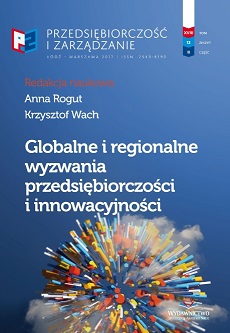Agent’s Performance Versus Life Insurance Company Effectiveness: Five Factor Model
Agent’s Performance Versus Life Insurance Company Effectiveness: Five Factor Model
Author(s): Andrzej JanowskiSubject(s): Business Economy / Management, Micro-Economics, Financial Markets, Human Resources in Economy
Published by: Społeczna Akademia Nauk
Keywords: competitive advantage; efficiency; human performance; management; organization; personality traits;
Summary/Abstract: The purpose of this article is to demonstrate the crucial role of five factor model of Costa and McCrae implementation in the context of life insurance industry effectiveness from both theoretical and practical perspectives. There was implemented and tested the five factor model (FFM) of Costa and McCrae, based on a case study of four largest life insurance companies, one domestic and three international ones, on the basis of international scientific projects conducted from 2008 to 2014 and sample of 796 most effective life insurance agents. The results imply the existence of a positive correlation between openness to experience and neuroticism traits and the life insurance agent’s efficiency. The study is focused on job, or task based cues, but there are other factors that may be relevant. Future research might study those variables as situational moderators as well. In this context, it is important to accept an assumption concerning the permanence of personality traits [Mc-Crae, Costa 2003], and the response to items on a personality inventory at any one moment is determined by many traits, states and features of immediate situation.
Journal: Przedsiębiorczość i Zarządzanie
- Issue Year: 18/2017
- Issue No: 12.2
- Page Range: 449-461
- Page Count: 13
- Language: English

